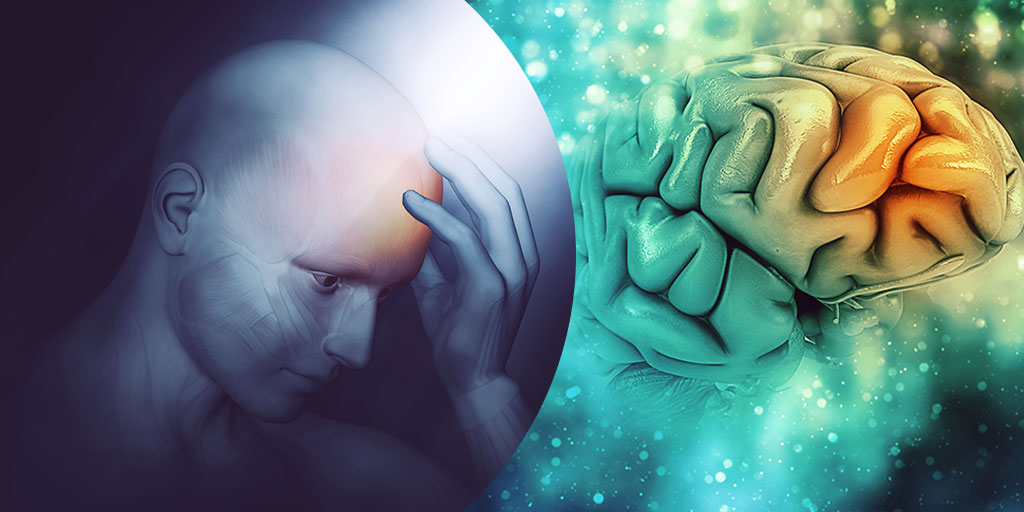This damage typically starts in the areas of the brain involved in learning and memory and then spreads to other parts of the brain. As more brain cells degenerate, a person with Alzheimer’s disease eventually will develop dementia — a group of symptoms that significantly interferes with daily life and activities.
What is Alzheimer’s Disease?
The disease typically affects older adults, but can occasionally occur in younger people. Early onset Alzheimer’s (before the age of 65) is particularly rare, accounting for only 5% of all cases.
There is no known single cause of Alzheimer’s disease, but it is thought to be the result of a combination of genetic, lifestyle, and environmental factors. Genetics plays a role in around 1 in 20 cases of Alzheimer’s, with certain genes putting people at greater risk of developing the disease. Other risk factors include age, head injury, smoking, and diabetes.
There is currently no cure for Alzheimer’s disease, but treatments are available to help manage the symptoms and slow down the progression of the disease. These treatments include medication, cognitive training, and support for caregivers.
Symptoms of Alzheimer’s Disease
One of the most frustrating things about Alzheimer’s disease is that its symptoms can be very hard to spot in the early stages. This is because they tend to develop slowly and gradually, and can sometimes be mistaken for other conditions, such as normal age-related memory loss.
However, there are some key symptoms which are more likely to occur in Alzheimer’s, and which may become more pronounced over time. These include:
* Difficulty remembering recent events or conversations
* Repeating oneself or forgetting what one has just said
* Losing interest in hobbies or activities which were previously enjoyed
* Taking longer to complete familiar tasks
* Making bad decisions or becoming increasingly confused
* Changes in mood or behaviour, such as becoming agitated or withdrawn
If you notice any of these changes in yourself or a loved one, it’s important to see a doctor so that a diagnosis can be made. While there is currently no cure for Alzheimer’s, treatments are available which can help to manage the symptoms and slow down the progression of the disease.
Causes of Alzheimer’s Disease
Alzheimer’s disease is a progressive and degenerative brain disorder that leads to memory loss and cognitive decline. While the exact Alzheimer’s disease causes is unknown, there are several risk factors that have been identified.
The vast majority of cases occur in people over the age of 65. Other risk factors include family history, genetics, and lifestyle choices.
While the cause of Alzheimer’s disease is still largely a mystery, scientists believe that it is likely caused by a combination of these risk factors. As we age, our brains become more susceptible to damage from things like inflammation and oxidative stress. This damage can lead to the formation of plaques and tangles in the brain, which are thought to be the hallmark features of Alzheimer’s disease.
Lifestyle choices such as diet, exercise, and smoking can also affect your risk for Alzheimer’s disease. Eating a healthy diet and exercising regularly can help reduce your risk, while smoking has been linked to an increased risk.
There is no one definitive answer to what causes Alzheimer’s disease. However, by understanding the
Treatments for Alzheimer’s Disease
There is no one-size-fits-all treatment for Alzheimer’s disease, as the severity of symptoms and the rate at which the disease progresses vary from person to person. However, there are a number of options available that can help manage the condition and improve quality of life.
The most common approach to treatment is a combination of medication and lifestyle changes. Medications can help relieve symptoms and slow the progression of the disease, while lifestyle changes can help improve cognitive function and memory.
Medications that are commonly used to treat Alzheimer’s disease include cholinesterase inhibitors and memantine. Cholinesterase inhibitors work by boosting levels of a chemical messenger in the brain that is important for memory and learning. Memantine works by reducing the activity of another chemical messenger that is involved in Alzheimer’s disease.
Lifestyle changes that can help manage Alzheimer’s disease include exercise, social activities, and a healthy diet. Exercise has been shown to improve brain function and slow the progression of Alzheimer’s disease. Social activities can help reduce stress and improve mood, while a healthy diet can help boost cognitive function.
Prevention of Alzheimer’s Disease
The best way to prevent Alzheimer’s disease is to live a healthy lifestyle. Additionally, it is important to stay mentally active and social. Some research suggests that certain, such as omega-3 fatty acids, may also help protect against Alzheimer’s disease.
Conclusion
Alzheimer’s disease is a devastating condition that causes degeneration of the brain and leads to memory loss, impaired thinking, and eventually death. Although there is no cure for Alzheimer’s, there are treatments available that can help slow the progression of the disease and improve symptoms. If you or someone you love has been diagnosed with Alzheimer’s, it is important to seek out treatment as soon as possible in order to give yourself or your loved one the best possible chance at managing the disease.
Apart from this if you are interested to know about Typical Tree Diseases then visit our Daily bites category.









